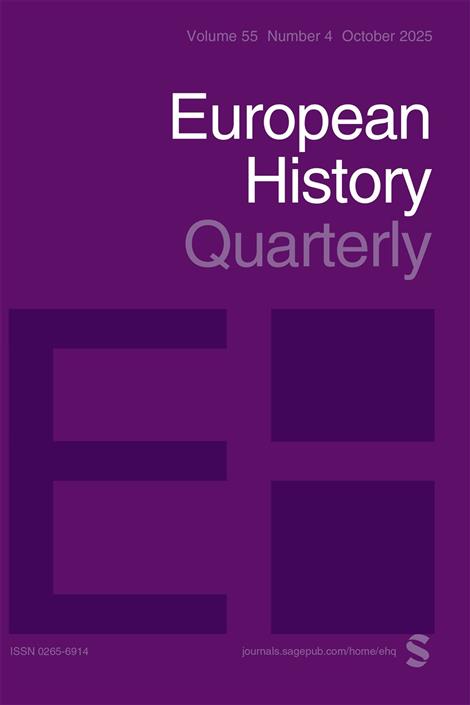


Notarial Archives and Social Network Analysis: Ottaviano Fregoso and the Genoese Consulate in Seville
This paper uses Social Network Analysis of notarial records to study the Genoese “merchant nation/guild” in southern Castile around 1500. Focusing on a 1520 letter from Governor Ottaviano Fregoso to Genoese merchants in Seville, it asks why only 20 received it. The article argues that dense commercial networks enabled fast communication but also challenged the guild’s formal structure.
‘I am Just a Walking Letterbox in Which They Deposit Their Complaints’: Being a Spanish Delegate for the Inspection of German Prisoner of War Camps During the First World War (1917–1919)
This article examines Spanish delegates’ roles in protecting Allied prisoners of war in Germany between 1917 and 1919. Drawing on newly discovered archives, it explores how these neutral intermediaries observed German society under wartime strain. Their correspondence reveals that humanitarian work intertwined with personal ambitions and expectations of symbolic and material rewards, shaping their actions and concerns.
Trailblazing the Transition: Moving Beyond Limits to Growth in the Netherlands During the Long 1970s
In the 1970s, the environmental debate in the Netherlands challenged the supremacy of the growth paradigm. The dispute culminated in the ‘Selective Growth Memorandum’ in 1976, which was intended to unite environmental and economic goals. Although it adhered to the growth model, it discursively prepared the ground for ecological modernisation.
‘Many Modern Industrial Spies are Excellent Scholars’: Industrial Counterespionage and Images of Knowledge in Czechoslovakia During the Great Depression
The article examines how security-oriented images of knowledge gained importance in interwar Czechoslovakia. Using industrial counterespionage, it links ideological demands with shifting views on corporate research and traces state interventions, especially during the Great Depression, culminating in restricted technology transfer and expert debates on the 1935 Economic Espionage Act.
Notarial Archives and Social Network Analysis: Ottaviano Fregoso and the Genoese Consulate in Seville
This paper uses Social Network Analysis of notarial records to study the Genoese “merchant nation/guild” in southern Castile around 1500. Focusing on a 1520 letter from Governor Ottaviano Fregoso to Genoese merchants in Seville, it asks why only 20 received it. The article argues that dense commercial networks enabled fast communication but also challenged the guild’s formal structure.
‘I am Just a Walking Letterbox in Which They Deposit Their Complaints’: Being a Spanish Delegate for the Inspection of German Prisoner of War Camps During the First World War (1917–1919)
This article examines Spanish delegates’ roles in protecting Allied prisoners of war in Germany between 1917 and 1919. Drawing on newly discovered archives, it explores how these neutral intermediaries observed German society under wartime strain. Their correspondence reveals that humanitarian work intertwined with personal ambitions and expectations of symbolic and material rewards, shaping their actions and concerns.
Trailblazing the Transition: Moving Beyond Limits to Growth in the Netherlands During the Long 1970s
In the 1970s, the environmental debate in the Netherlands challenged the supremacy of the growth paradigm. The dispute culminated in the ‘Selective Growth Memorandum’ in 1976, which was intended to unite environmental and economic goals. Although it adhered to the growth model, it discursively prepared the ground for ecological modernisation.
‘Many Modern Industrial Spies are Excellent Scholars’: Industrial Counterespionage and Images of Knowledge in Czechoslovakia During the Great Depression
The article examines how security-oriented images of knowledge gained importance in interwar Czechoslovakia. Using industrial counterespionage, it links ideological demands with shifting views on corporate research and traces state interventions, especially during the Great Depression, culminating in restricted technology transfer and expert debates on the 1935 Economic Espionage Act.
